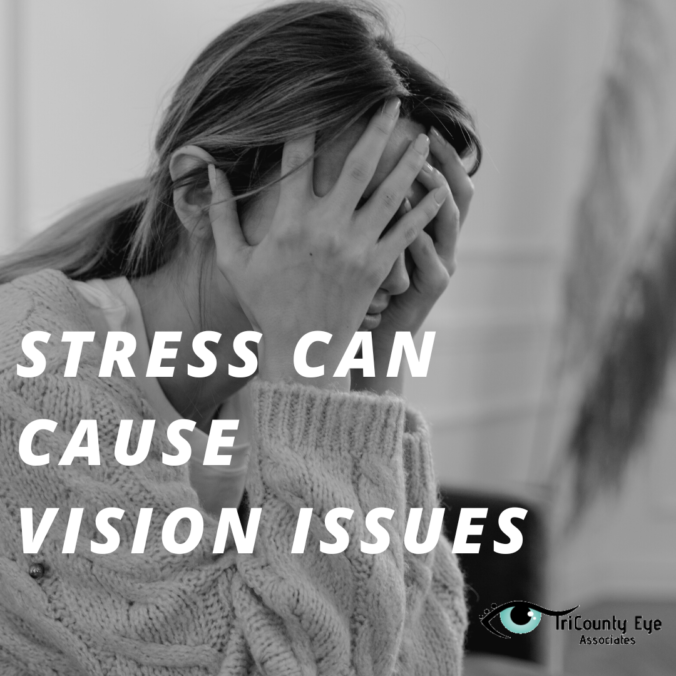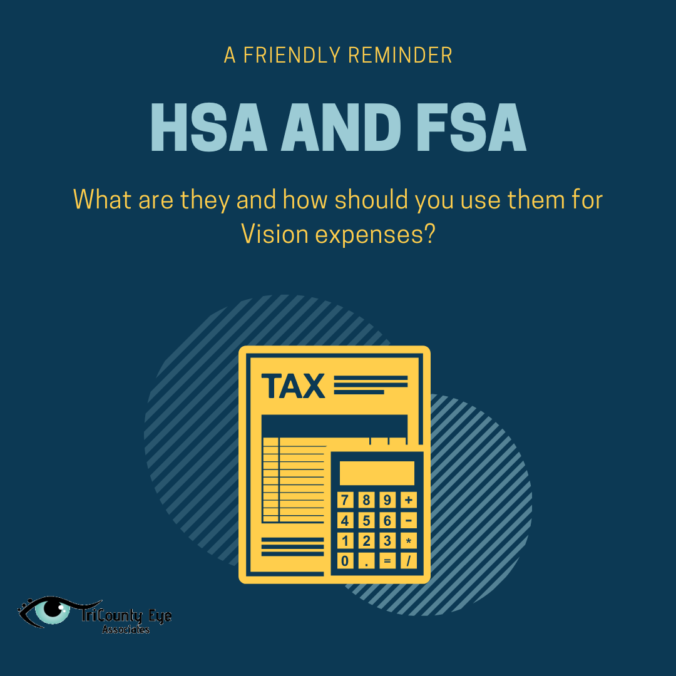Stress is a big factor in our society today. So many outside stressors can cause a lot of damage to your health. Did you know that in addition to your overall health, constant stress can also cause issues for your eyes?
Types of Stress
There are two main types of stress.
Acute Stress – This type of stress is short term and can go away quickly. It helps you to manage dangerous situations, like when you slam on your breaks or ski down a steep slope. This type of stress can also occur when you do something exciting or new. Everyone encounters this type of stress at some point in their lives.
Chronic Stress – Chronic stress lasts for a longer period of time. Chronic stress can be caused by finances, work or relationships. This kind of stress can last weeks or months. This is the kind of stress that can cause long term health problems.
What Stress Can Do To Your Eyes
If you have chronic stressors in your life but you are not doing anything to manage that stress you may see many health problems start to show up. Some health issues linked to chronic stress are:
- High blood pressure
- Heart disease
- Diabetes
- Depression
- Skin problems
Of course, vision problems are on the list as well. One of the biggest links from stress to vison is the stress hormone cortisone. This hormone is gradually released by the body as a reaction to stress. It can increase your heart rate, respiration, blood pressure and muscle tension. Cortisol also helps to regulate the digestive and reproductive systems during a stress crisis.
If you are experiencing chronic anxious moments it can result in a dangerous increase in cortisol levels. When cortisol levels will disrupt the blood flow from the eye to the brain which can cause vision problems.
The majority of stress related vision problems are usually temporary but if you have a consistent issue it could be related to stress. Some stress related vision issues are:
- Light Sensitivity
- Tunnel Vision
- Eye Twitching
- Extremely dry or wet eyes
- Blurry Vision
- Eye Strain
- Eye Floaters
- Double Vision
- Vision Distortions
Ways to Manage Stress
If you feel like you could be experiencing some of the above issues and think it could be related to chronic stress here are some tips to help you learn to manage your stress.
- Take breaks from the news and social media – disconnecting from screens and traumatic news stories can help lower your stress levels.
- Take care of yourself – eat healthy, get regular exercise and make sure to get enough sleep.
- Schedule time to unwind – make sure to make time for activities you really enjoy.
- Talk to your family and friends – it can help to get your troubles off your chest. Talk to someone you trust about what you’re feeling.
- Connect with your community – having a good support system around you can help you to make the time to relieve stress.
We are always thinking of ways to give our patients the knowledge they need in order to take care of themselves. If you have any vision issues that you are concerned about make an appointment with us!


